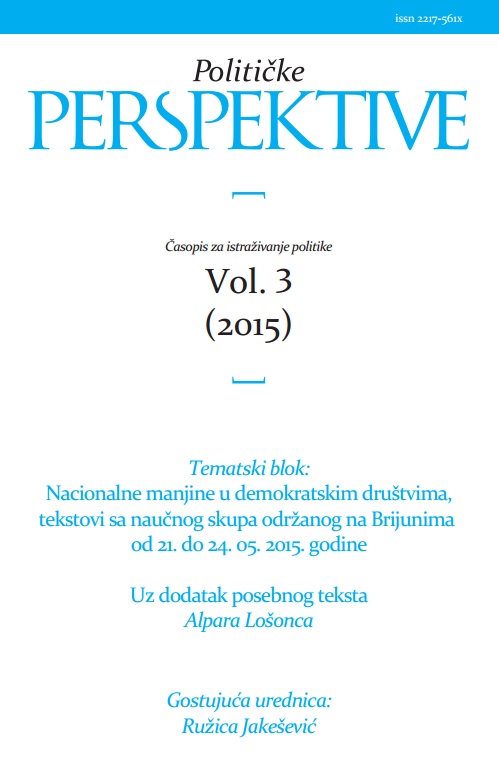Relativizacija evropskih manjinskih politika – studija slučaja Bosna i Hercegovina
Eelativization of European National Minority Politics – Case Study Bosnia and Herzegovina
Author(s): Miloš ŠolajaSubject(s): Inter-Ethnic Relations, Ethnic Minorities Studies
Published by: Fakultet političkih nauka Univerziteta u Beogradu & Fakultet političkih znanosti u Zagrebu
Summary/Abstract: the author discusses the reasons for relativization of the national minorities protection policy of the Council of europe and the european union in light of the problems with national minorities protection in Bosnia and Herzegovina. the minorities protection policies in Bosnia and Herzegovina had implications for minority rights protection in Hungary and Croatia after Croatia’s accession to the eu. the european union, the Council of europe and other european institutions defined their position towards minority rights in light of the european Court for Human rights decision in the Sejdić and Finci case. the decision specified mandatory constitutional changes in terms of equal protection of national minority rights. according to the demanded constitutional revisions, the representatives of national minorities would have a right to compete for legal and executive positions in the entire Bosnia and Herzegovina. Before the eCHr decision, only representatives of the three constituent peoples – Bosniaks, Serbs and Croats could be nominated for positions in the legislature and in the executive institutions. the Council of europe mediated by Coe Parliamentarian assembly and Committee of Ministers threatened to suspend BiH membership to the Coe until the decision was implemented. at the same time, coordinated european union institutions made the ratification of the Stabilization and association agreement (Saa) negotiated with Bosnia and Herzegovina in 2008 conditional upon the implementation of the Sejdić and Finci decision. the threat wasn’t carried through and BiH became presiding country of the Committee of Ministers of the Council of europe in 2014. In the meantime, the newly elected european Parliament as well as recently appointed european Commission accepted the Saa although the Sejdić-Finci decision was not incorporated in the constitution of Bosnia and Herzegovina.
Journal: Političke perspektive
- Issue Year: 5/2015
- Issue No: 14
- Page Range: 39-67
- Page Count: 29
- Language: Serbian

